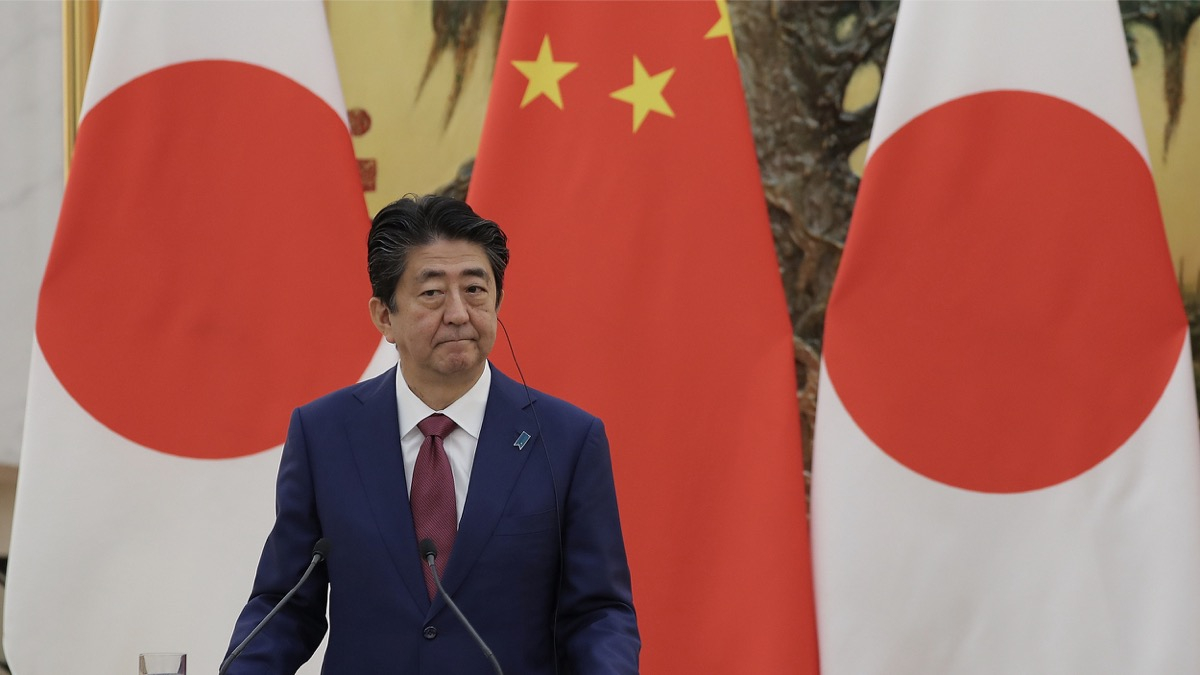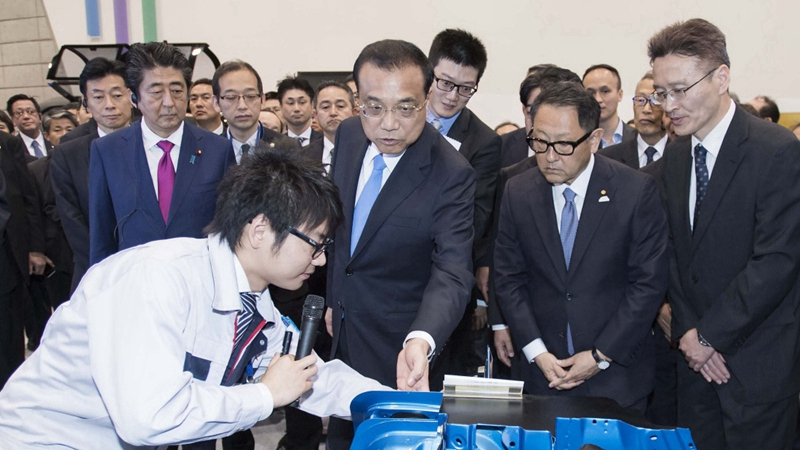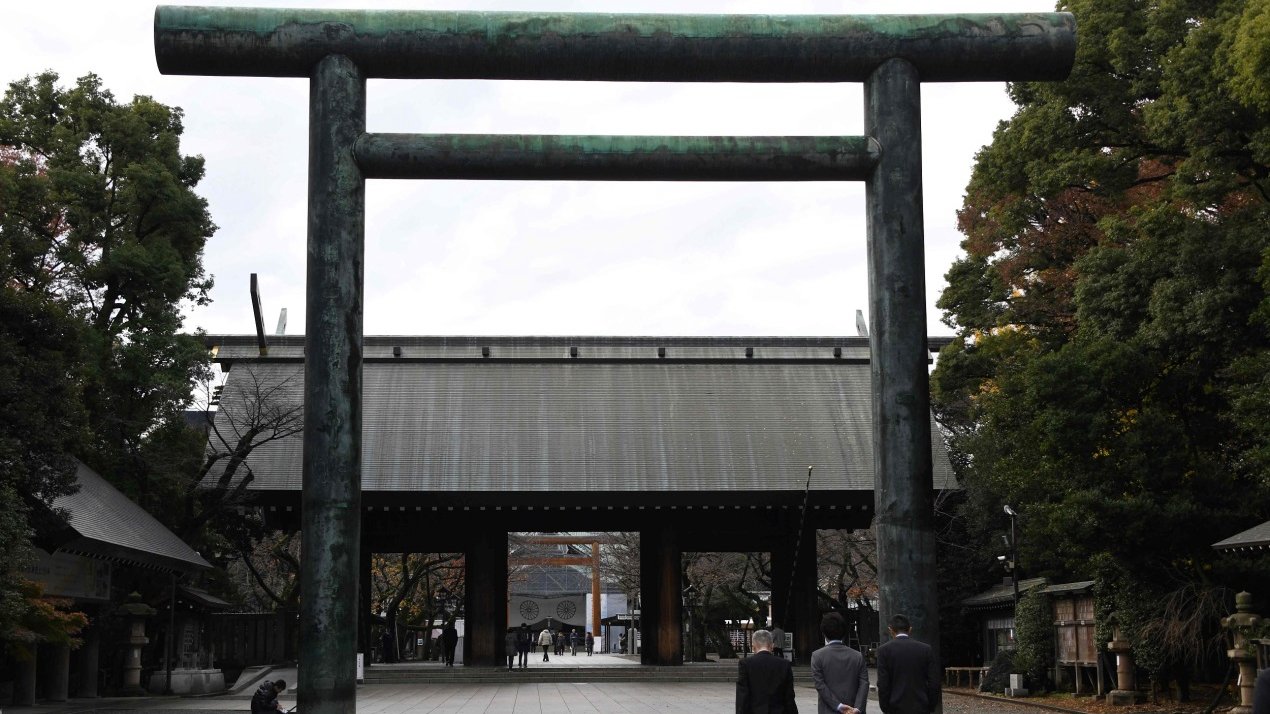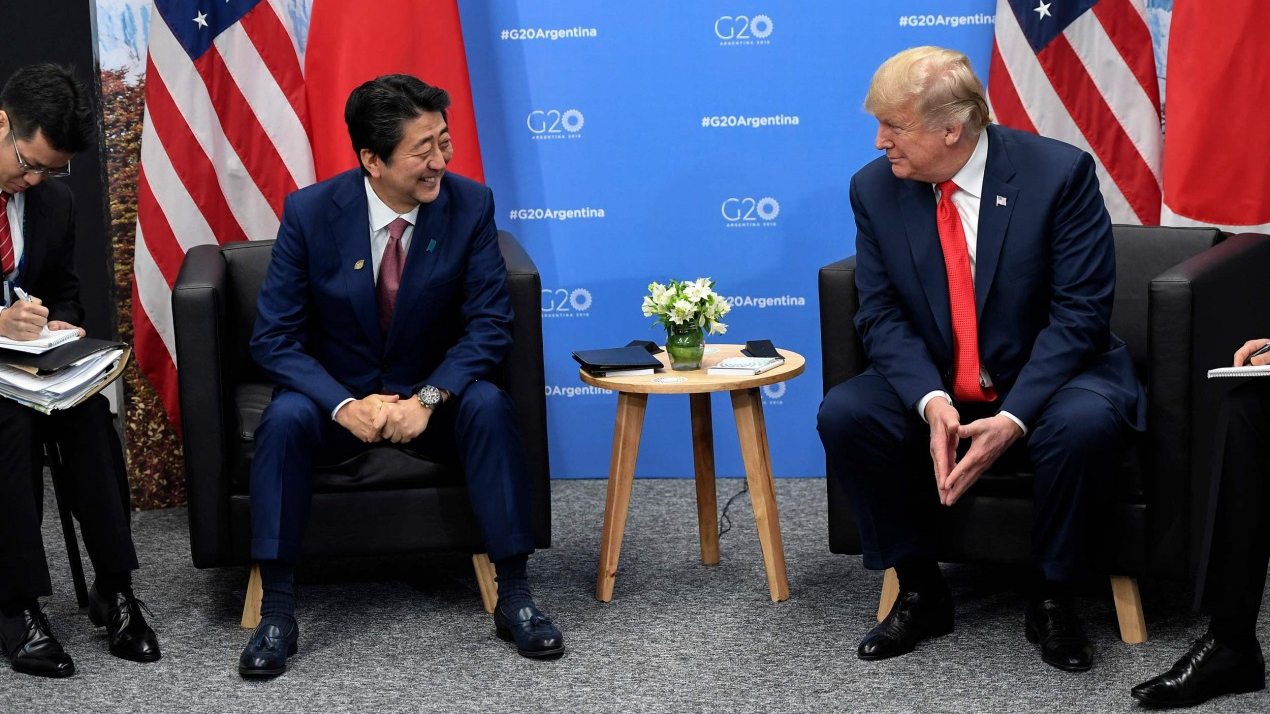
Business
19:45, 13-Dec-2018
China-Japan relations improve amid trade conflict with U.S.
Updated
19:45, 16-Dec-2018
By Yang Zhao
02:04

Despite a bitter history, China and Japan embraced the 40th anniversary of their peace and friendship treaty this year.
China-Japan relations, which have been haunted by territorial disputes and historical issues, saw some positive progress this year.
Mutual visits have restarted
In May, Prime Minister Shinzo Abe invited his Chinese counterpart Li Keqiang to visit Japan during the China-Japan-South Korea leaders' meeting in Tokyo.

Chinese Premier Li Keqiang visited Japan in May 2018. /CGTN Photo
Chinese Premier Li Keqiang visited Japan in May 2018. /CGTN Photo
Five months later, Abe finally came to Beijing for a three-day visit. He met Chinese President Xi Jinping, attended the 40th anniversary celebration of the peace treaty and addressed students and faculty at Peking University.
Analysts said Abe hoped the Beijing tour could facilitate Xi's official visit to Japan during the Tokyo G20 summit in 2019. It's a good sign that exchange of high-level visits, which had stalled for a long time, is happening again.
Japan's side
Back in Japan, broadcaster NTV aired a 45-minute documentary revealing the Japanese army's atrocities in the Nanjing Massacre. For a long time, tensions between China and Japan have had their roots in some of Tokyo's policies that attempted to cover and distort this part of history.

The Yasukuni Shrine in Tokyo. /VCG Photo
The Yasukuni Shrine in Tokyo. /VCG Photo
Adding to the positive momentum, Abe and his senior aides sent ritual offerings to the war-linked Yasukuni Shrine, instead of visiting in person during this year's autumn festival, which occurred a week before Abe's visit to China.
How far is it to China-Japan honeymoon?
It's still far away.
For now, what's making China and Japan once again stand together is probably because the U.S., Tokyo's ally, has ratcheted up pressure on Japan, trying to force it to narrow down the trade deficit.
But their negotiation over automobiles and agricultural products will not reach a final agreement until January, when Tokyo may really reassess its relationship with Washington and Beijing.

U.S. President Donald Trump (R) speaks with Japan's Prime Minister Shinzo Abe (L) on the sidelines of the G20 summit in Buenos Aires. /VCG Photo
U.S. President Donald Trump (R) speaks with Japan's Prime Minister Shinzo Abe (L) on the sidelines of the G20 summit in Buenos Aires. /VCG Photo
Before his visit to China, Shinzo Abe and French President Emmanuel Macron agreed to step up cooperation in promoting stability in the Indo-Pacific region, where they believed China has been increasing its influence.

SITEMAP
Copyright © 2018 CGTN. Beijing ICP prepared NO.16065310-3
Copyright © 2018 CGTN. Beijing ICP prepared NO.16065310-3